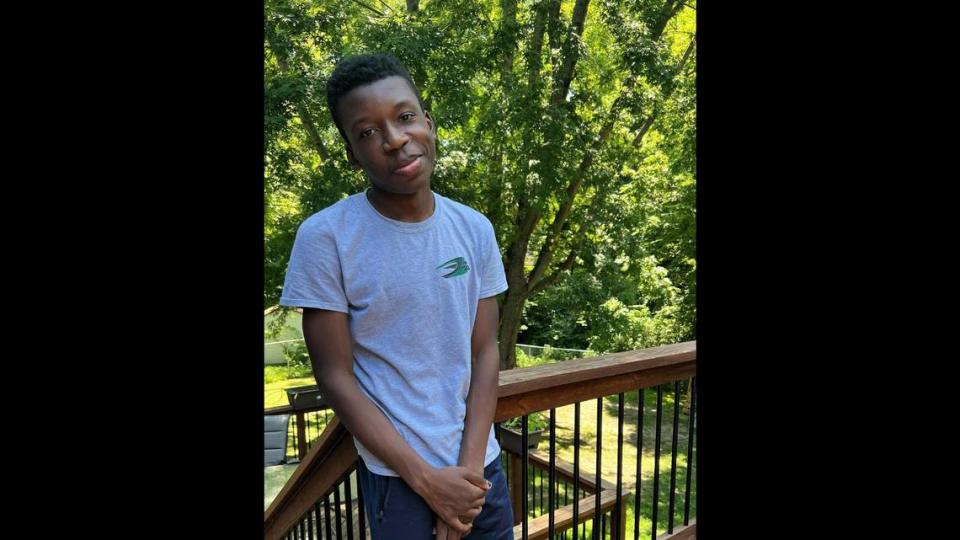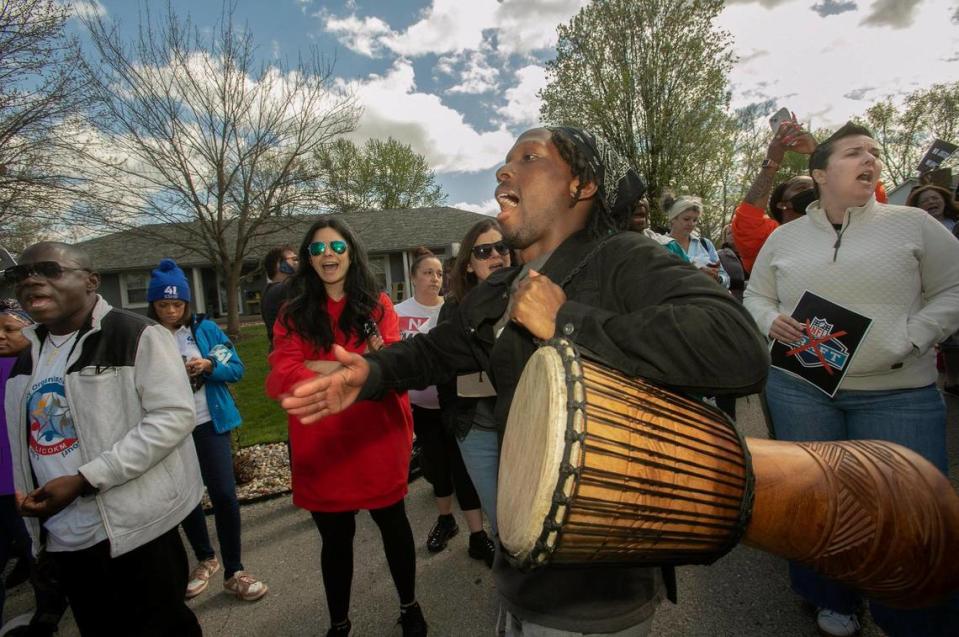Andrew Lester, Kansas City man charged with shooting Ralph Yarl, wants judge to seal case
Arguing that greater publicity could harm his right to a fair trial, the defense attorney for Kansas City Northlander Andrew D. Lester, the 84-year-old white homeowner accused of shooting Ralph Yarl after the Black teenager rang his doorbell, wants a judge to prevent additional case information from being shared publicly.
Because of negative attention largely attributed to “significant” and sometimes “inaccurate” news coverage, Lester has been forced to leave his home, and his wife was harassed to the point that she needed to relocate from the nursing facility where she resided, his lawyer Steven Salmon said in a court motion filed Monday.
The 84-year-old’s house has been defaced by eggs and graffiti, and he requires law enforcement protection to travel, the lawyer said. Allowing more information to reach the public could further jeopardize his case and his safety, Salmon said, by adding “fodder to oftentimes inaccurate and speculative statements about the case.”
“This publicity in this case has already caused a widespread adverse and prejudicial reaction against the defendant and prejudice to his case,” the lawyer said in the motion, adding: “Further information placed in the public domain will continue to fuel speculation and taint Defendant’s ability to receive a fair and impartial trial by a jury of his peers.”
Lester stands accused of first-degree assault, a felony that carries a maximum penalty of life in prison, and armed criminal action for shooting Yarl. Lester has pleaded not guilty to those crimes, and his attorney signaled Monday that he will rely in part on self-defense laws, including those commonly known as Stand Your Ground and The Castle Doctrine.
The shooting of Yarl touched off a national conversation about racism and gun rights after the 16-year-old was hospitalized for three days and forced to recover from the physical and mental traumas that come with being shot. Civil rights activists and politicians, including prominent Black leaders in Kansas City, have pointed to the case as an example of how racial biases, whether implicit or explicit, can be fatal for Black Americans.
On April 13, around 9:30 p.m., Yarl mistakenly parked in the driveway and rang the doorbell of Lester’s home on Northeast 115th Street while looking for his younger brothers. But his siblings were actually waiting to be picked up from a house on 115th Terrace, one block north.

The error nearly ended Yarl’s life. During a police interview, the teenager recalled ringing the doorbell, waiting patiently and being shot “immediately” once the older, white man saw him on the doorstep.
He was struck in the head by the first bullet as the glass storm door shattered. After falling to the ground, Yarl said he was shot a second time in the arm. And as he ran to seek help from neighbors, he heard Lester say: “Don’t come around here.”
Lester was arrested by Kansas City police at his home that night. He told detectives he got out of bed to answer the doorbell, gun in hand, and fired a shot at a tall, Black stranger who he believed was breaking in.
Lester told police he was “scared to death” when he saw Yarl there, admitting he fired two shots “within a few seconds” of opening the door and without saying a word. He also accused Yarl of pulling on the door handle, a statement the teen and his family disputed.
Prior to interviewing Yarl, police booked Lester in city jail and then released him from custody, prompting public outrage directed at the Kansas City Police Department and the Clay County prosecutor’s office. Kansas Citians, inspired by public statements Yarl’s relatives made on social media, quickly organized a weekend demonstration outside of Lester’s house.

The story received widespread attention, including from Hollywood celebrities. An online fundraiser generated nearly $3.5 million for Yarl’s medical recovery and other expenses, and President Joe Biden invited him to visit the White House.
Amid the mounting public pressure, Clay County Prosecuting Attorney Zachary Thompson announced criminal charges four days after the shooting. During a news conference, where Thompson repeatedly declined to “try the case” in the press, the top prosecutor said there was a “racial component” to the shooting, but declined to elaborate.
Those charges were met with a measured sense of relief by Yarl’s family, and his lawyers — well-known civil rights attorneys Lee Merritt and Ben Crump. Alongside political figures and activists, they’ve called on the Department of Justice to open a federal investigation to consider whether Lester’s actions amounted to a hate crime.
Meanwhile, as Lester fights the criminal charges filed against him in Clay County, the 84-year-old’s attorney is asking for a prohibition on information sharing to anyone who is not directly involved in the case. Those include materials possessed by prosecutors or police.
Salmon, the defense attorney, also said there is an assumption that Thompson will continue investigating and he believes dissemination of more information would be harmful to Lester while the case is “active and ongoing.”


